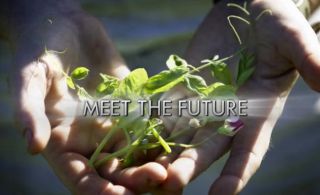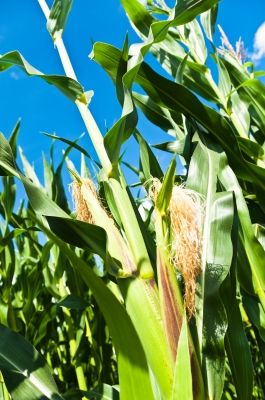Career
The Evolution of Tradition
The pull of family is strong even when risks are great…down on the farm.
Posted June 3, 2014

The family business draws many sons and daughters “home” to law firms, retail stores, factories, and parent or grandparent-initiated ventures of all sorts to not only run the business, but also to uphold customs, hold family close, and keep memories alive.
The average age of an American farmer is 60 years old, but a new generation of young farmers is altering farming practices while adhering to the bonds that brought them to farming in the first place—their families.
The film “Farmland,” by Academy Award winner James Moll, profiles six young farmers. Five farm because their parents did before them: Leighton Cooley, a fourth generation poultry farmer who operates four farms with his father in Georgia; Brad Bellah, a sixth generation Texan rancher; David Loberg, a fifth generation corn and soybean farmer in Nebraska; Sutton Morgan, a fourth generation organic farmer in southern California; and Ryan Veldhuizen, a fourth generation hog, corn and soybean farmer in Minnesota. They are all in their 20s and want to change the industry’s image.
Like the others, Ryan Veldhuizen explained that he hopes everyone, especially those who have never set foot on a farm, will understand that their food is produced by people—people who are dedicated to their families, like everyone else. He runs the family’s hog business with his brother and sister.
Family tradition wins out—down on the farm

Farming has changed drastically; technology now operates most of today’s farms. Nonetheless, it remains very risky as it has always been, highly dependent on weather and market fluctuation. Despite that, in the documentary these young farmers talk about their yearning to continue what their parents, grandparents and great grandparents started. They are passionate about a way of life that has been passed down from generation to generation.
Family pulled these young farmers and ranchers home after completing their college educations. Their parents gave them the option to pursue whatever career path they wanted—no pressure to return to home. But, farming and ranching is in their blood. For them, like other 20-somethings who join their family businesses, devotion to family often overrides other choices.
David Loberg, who oversees the family’s corn and soybean farm with his mother, selected three of the best ears of corn from the last harvest he and his father had planted together. He placed two ears in the coffin with his father; the other sits on the desk in the office he and his mother share. It’s a touching and powerful symbol of the bond between a father and son who shared a passion and their love for each other and farming.
“Farmland” is a stunning documentary that not only challenges our view of farmers and ranchers today, but also underscores our deep connection to family…and to what we eat.
Note: “Farmland” was supported by the U.S. Farmers & Ranchers Alliance which is made up influential groups such as the National Cattlemen’s Beef and major corporations (Monsanto , Dupont, John Deere) who have a stake in the agriculture business. Some argue the documentary glosses over the issues of animal cruelty, antibiotic use and GMOs. For me, this criticism did not detract from the earnest dedication to family and farming as presented by those profiled.
For more information and to watch the trailer, go to Farmland
Copyright @ 2014 Susan Newman, Ph.D.
· Follow Susan Newman on Twitter and Facebook
· Sign up for Dr. Newman's monthly Family Life Alert Newsletter
· Visit Susan's website: www.susannewmanphd.com
· See Susan’s latest book: The Case for the Only Child: Your Essential Guide


